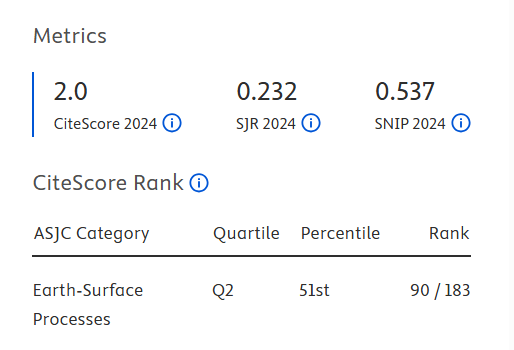Design of Solar-powered Automatic Shrimp Feeder based on the Internet of Things Technology

Downloads
This paper presents the design and implementation of a solar-powered automatic shrimp feeder utilizing IoT technology to enhance efficiency and precision in aquaculture. The core of the system is the DC motor operated feeder mechanism, and is capable of user defined customization like feeding scheduling, speed control, real time system monitoring etc. from distance through IoT integration via a smartphone. The motor speed can be adjusted to 1000, 1500, and 2000 rpm as per the requirement. Additionally, system can also monitor other water quality parameters like water temperature, pH and DO values, which are displayed via a smartphone. The experimental results confirm that the feeder perform as expected, it is capable of dispensing 5 kg of feed within 54 second, feeding up to 4.5 m depth when operating at 2000 rpm while consuming just 178.92 W power. The feeder is designed to autonomously determine its operating schedule, with users having the flexibility to adjust the timing at any point through the mobile application. This automation ensures consistent and efficient feeding aligned with aquaculture needs. Furthermore, the study includes a comprehensive cost analysis. The use of solar power and automation led to an annual cost reduction of 83.18% compared to manual labor. Over a ten-year period, the system achieved a total cost savings of 96.78%, amounting to 1,460,000 baht. Beyond enhancing feeding efficiency, the integration of IoT in shrimp farming substantially lowers labor expenses, contributing to a more sustainable and economically viable farming model.
Ahmed, F., Bijoy, Md. H., Hemal, H. R., & Noori, S. R. (2024). Smart aquaculture analytics: Enhancing shrimp farming in Bangladesh through real-time IOT monitoring and predictive machine learning analysis. Heliyon, 10(17). https://doi.org/10.1016/j.heliyon.2024.e37330
Ani, D.T., Cueto, M.G.F., Diokno, N.J.G., & Perezl, K.R.R. Solar Powered Automatic Shrimp Feeding System. Asia Pacific Journal of Multidisciplinary Research, 3(5), December 2015 pp. 152-159.
Arditya, I., Setyastuti, T. A., Islamudin, F., & Dinata, I. (2021). Design of automatic feeder for shrimp farming based on internet of things technology. International Journal of Mechanical Engineering Technologies and Applications, 2(2), 145. https://doi.org/10.21776/mechta.2021.002.02.8
Blancaflor, E., & Baccay, M. (2021). Design of a solar powered IOT (internet of things) remote water quality management system for a biofloc aquaculture technology. 2021 3rd Blockchain and Internet of Things Conference. https://doi.org/10.1145/3475992.3475996
Boonraksa, P., & Boonraksa, T., The design of automatic chicken feeders machine controlled by a smartphone, International Journal of Science and Innovative Technology, Volume 5 Issue1 January - June 2022.
Deepthi, C.S., Kalpana, S., Charan, S.V., & Lekhana, D. (2023). Automatic Fish Feeder Using Tracking Of Solar Energy and Internet of Things. 2023 10th IEEE Uttar Pradesh Section International Conference on Electrical, Electronics and Computer Engineering (UPCON), 10, 311-315.
Dhanaraju, M., Chenniappan, P., Ramalingam, K., Pazhanivelan, S., & Kaliaperumal, R. (2022). Smart Farming: Internet of Things (IoT)-Based Sustainable Agriculture. Agriculture, 12(10), 1745. https://doi.org/10.3390/agriculture12101745
Hendarti, R., & Septiafani, L. (2020). Economic Analysis on the application of solar panels on an aquaculture. IOP Conference Series: Earth and Environmental Science, 426, 012073. https://doi.org/10.1088/1755-1315/426/1/012073
Huang, Y.-P., & Khabusi, S. P. (2025). Artificial Intelligence of Things (AIoT) Advances in Aquaculture: A Review. Processes, 13(1), 73. https://doi.org/10.3390/pr13010073
Kumar, D., Kumar, K., Roy, P., & Rabha, G. (2024). Renewable Energy in Agriculture: Enhancing Aquaculture and Post-Harvest Technologies with Solar and AI Integration. Asian Journal of Research in Computer Science, 17(12), 201–219. https://doi.org/10.9734/ajrcos/2024/v17i12539
LM117/217 LM317 - Pilianidis. (n.d.). https://www.pilianidis.gr/images/sync_products/03-LM117K/03-lm117K.pdf.
Morchid, A., El Alami, R., Raezah, A. A., & Sabbar, Y. (2024). Applications of internet of things (IOT) and sensors technology to increase food security and agricultural sustainability: Benefits and challenges. Ain Shams Engineering Journal, 15(3), 102509. https://doi.org/10.1016/j.asej.2023.102509
Murtianta, B. & Rumaksari, A. N. Power Regulator Design Using LM317 for Precise and Efficient Power Management, Jurnal Elektronika dan Telekomunikasi, 24(2), pp. 96 - 104, Dec. 2024. https://doi.org/10.55981/jet.632
Rethwan Faiz, N., Alam, N., Prokorso, M., Shah, S.M., Naser Khan, M.R., Hoque, & Alam, N.N. Simulation of IoT based solar powered automated fish feeding system, Agricultural Engineering International: CIGR Journal. Dec2022, Vol. 24 Issue 4, p219-229. 11p.
Sahoo, J. & Barrett, K., Internet of Things (IoT) Application Model for Smart Farming, SoutheastCon 2021, Atlanta, GA, USA, 2021, pp. 1-2, https://doi.org/10.1109/SoutheastCon45413.2021.9401845.
Said Mohamed, E., Belal, A., Kotb Abd-Elmabod, S., El-Shirbeny, M. A., Gad, A., and Zahran, M. B., “Smart farming for improving agricultural management. The Egyptian Journal of Remote Sensing and Space Science. Volume 24, Issue 3, Part 2, 2021, Pages 971-981.
Silalahi, A. O., Sinambela, A., Panggabean, H. M., & Pardosi, J. T. (2023). Smart automated fish feeding based on IOT system using Lora TTGO SX1276 and Cayenne platform. EUREKA: Physics and Engineering, (3), 66–79. https://doi.org/10.21303/2461-4262.2023.002745
Suksawad, P., & Boonkau, P., “Automatic fish feeder,” Suan The Third FIT SSRU Conference 2020, Sunandha Rajabhat University, May 1, 2020, pp. 363-369.
Thepsena, C., Koonsrisook, A. & Ponchunchoovong, S., (2022).Development of an automatic fish feedersystem for Tilapiaculture, Khon Kaen Agriculture Journal, 50(1), 124–137 https://doi.org/10.14456/kaj.2022.11.
Toruan, F.L. & Galina, M. 2023. Internet of Things- Based Automatic Feeder and Monitoring of Water Temperature, PH, and Salinity for Litopenaeus Vannamei Shrimp. Jurnal ELTIKOM : Jurnal Teknik Elektro, Teknologi Informasi dan Komputer. 7, 1 (Jun. 2023), 9–20. https://doi.org/10.31961/eltikom.v7i1.658
Wardhany, V. A., Yuliandoko, H., Subono, Rasyid, M. U., & Astawa, I. G. (2020). A mobile application development of automatic shrimp feeder system. Proceedings of the International Seminar of Science and Applied Technology (ISSAT 2020). https://doi.org/10.2991/aer.k.201221.008
Wayangkau, I. H., Nggego, D. A., Chotimah, C. & Patawaran, N. (2023). Internet of things implementation in automatic fish feeding. Technium: Romanian Journal of Applied Sciences and Technology, 17, pp. 67–74. https://doi.org/10.47577/technium.v17i.10048
Copyright (c) 2025 Journal of Engineering and Technological Sciences

This work is licensed under a Creative Commons Attribution-NonCommercial-NoDerivatives 4.0 International License.











